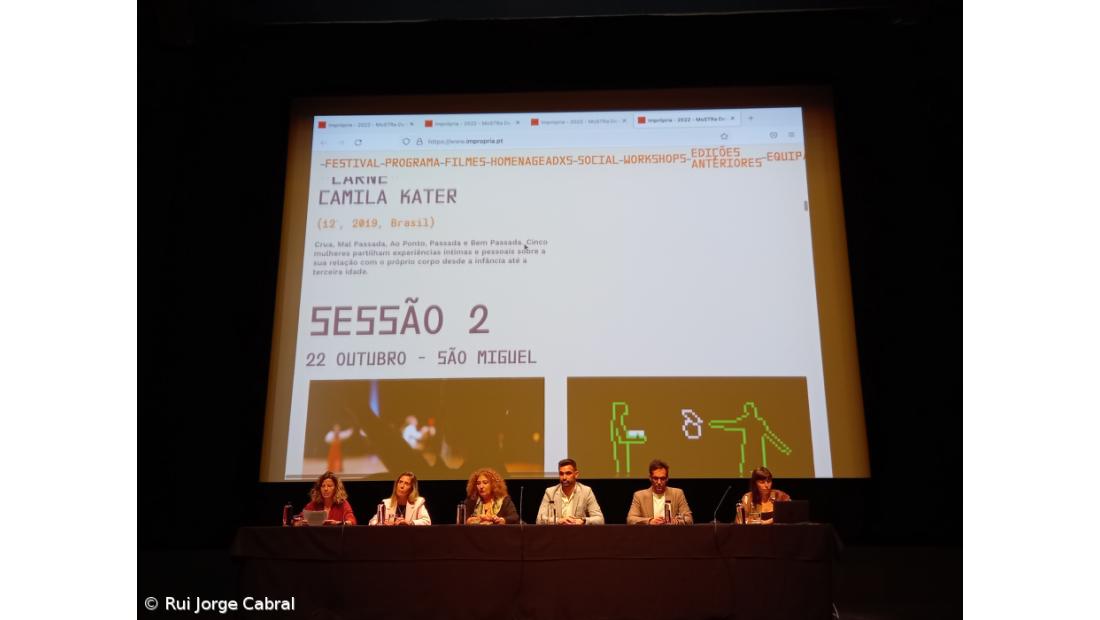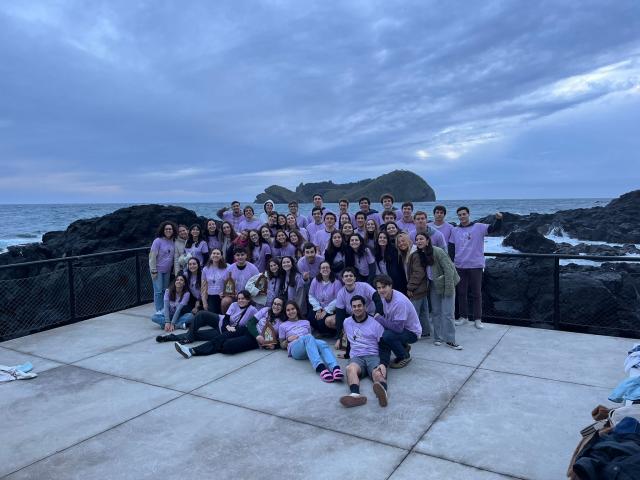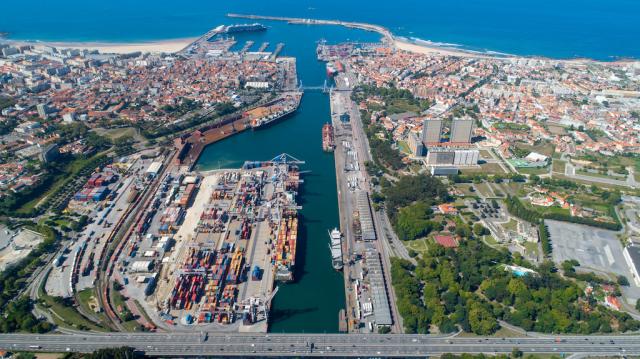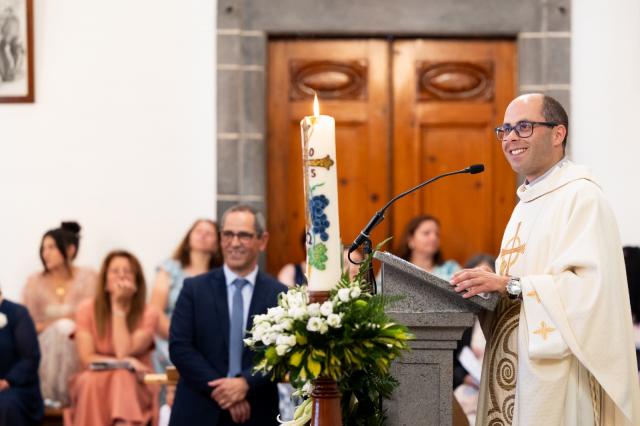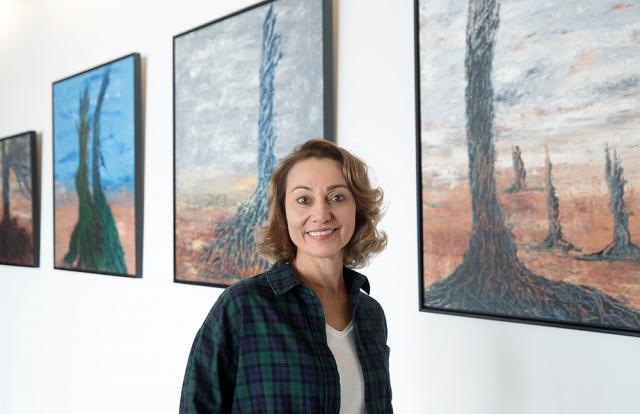A broad program, including social intervention, conversations, workshops, tributes, and films about gender equality, is what the 4th edition of Impropria – Gender Equality Film Exhibition has to offer. It took place on the island of São Miguel between October 21 and 27, extending to Santa Maria, on 17 November, and Terceira Island, from December 9 to 10.
As stated during the event's presentation by one of its founders, Natália Bautista, “this is a film show on Gender Equality: through culture it intends to make social intervention”.
Included in the celebrations of the Municipal Day for Gender Equality, Imprópria presented 18 short films of fiction, documentary, animation, and experimental cinema, which address topics such as human rights, desire orientation, gender violence, and sexual and gender identity. The event is curated by Samuel Andrade, an Azorean film buff who works at the Portuguese Cinematheque. Samuel Andrade has assembled an “ambitious, bold and diverse” set of films, all of them produced in the last 10 years and some of them in national premiere.
Imprópria, organized by Associação Silêncio Sonoro, also paid homage to the work developed by the writer, playwright, and activist Judite Canha Fernandes, as well as to the psychiatrist and sexologist Fernanda Mendes.
On October 22, in the Public Library and Regional Archive of Ponta Delgada, Roy Galán's Men's Workshop took place. "Men scissorhands: the masculinity that hurts" was the workshop's title, which drew inspiration from the film "Edward Scissorhands", by Tim Burton, and proposed to rethink masculinities. In this workshop, Roy Galán presented new functions for the hands, as a tool of togetherness, closeness, tenderness and fearlessness. A novelty of this year's Imprópria is the partnership with RTP-Açores.
At the opening of Imprópria, the town councilor Cristina do Canto Tavares recalled that “what drives us, regardless of whether we are political decision-makers, activists or technicians, is the people”.
As for the producer of Teatro Micaelense, Filipe Branco, the venue “promotes sociocultural dynamism, in a society where it increasingly makes sense to talk and discuss gender equality”. The Regional Director for Youth of the Government of the Azores, Eládio Braga, stressed the path that must be taken until “true equality” is achieved”.
Finally, the Regional Director for the Promotion of Equality and Social Inclusion of the Government of the Azores, Sandra Garcia, stated that "culture is essential to open minds, to break barriers and to bring new horizons".
Sandra Garcia concluded that “only through a change of mentalities will new attitudes be generated”, in a work that belongs to everyone”.
Social and Community Intervention Program
The Program for Social and Community Intervention of Imprópria took place from October 24 to 27, with the support of the Regional Directorate for the Promotion of Equality and Social Inclusion and in line with the Regional Strategy for Combating Poverty and Social Exclusion.
This program provided for the presentation of short films related to gender equality, followed by debates with young audiences in several schools of areas territories considered priority in terms of social intervention needs: Arrifes, Rabo de Peixe, Água de Pau and Fenais da Ajuda, in São Miguel, and Terra Chã, in Terceira (this session will take place on December 9).
As explained to Açoriano Oriental by one of Imprópria’s founders, Joana Amen, the event's social program is very important "because it provides the opportunity to talk to young people, deconstruct stereotypes and discuss the ideas and feelings that these films bring along. We believe this is necessary to stimulate social change", in a time when, although discrimination still exists, "it is no longer socially desirable to discriminate".

